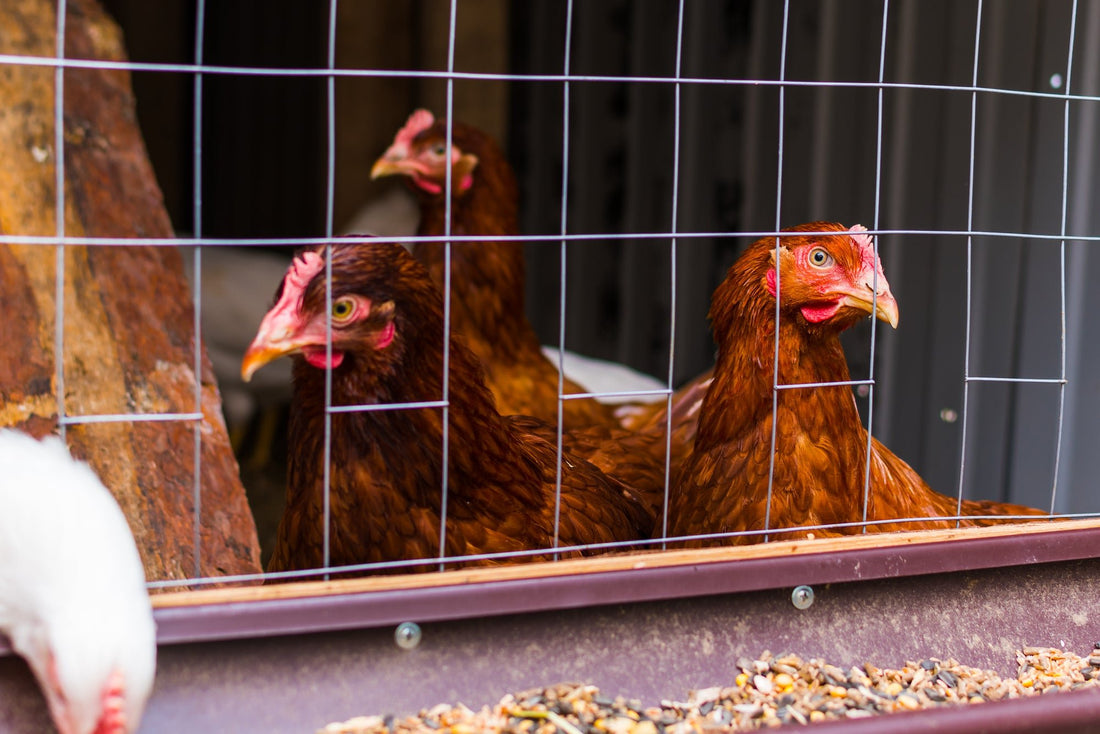For poultry farmers, pet chicken owners, or anyone involved in transporting chickens, understanding how to manage their stress during long journeys is crucial. Chickens are creatures of habit and can become easily stressed by changes in their environment, including during transportation. This article will delve into effective strategies to manage stress in chickens during long journeys, ensuring their health and well-being remain a top priority.
Understanding Stress in Chickens
Signs of Stress in Chickens
Vocalization: Excessive clucking or unusual noises can be a sign of distress.
Physical Symptoms: Look for panting, feather ruffling, or reduced preening activities.
Behavioral Changes: Reduced interaction with other chickens, changes in eating habits, or signs of aggression can indicate stress.
Pre-Transportation Preparation
Health Check
Veterinary Check-Up: Before embarking on a long journey, ensure your chickens are healthy. A pre-trip veterinary check-up can identify any potential health issues.
Acclimation
Crate Training: If possible, gradually acclimate your chickens to their crates or carriers a few weeks before the journey. This can help reduce stress on the travel day.
Crate Comfort
Appropriate Crating: Ensure the crates are spacious enough for the chickens to stand, turn around, and lie down comfortably.
Bedding: Use comfortable and absorbent bedding to keep the chickens comfortable and clean during the journey.
During the Journey
Environment Control
Temperature: Maintain a comfortable temperature in the vehicle. Chickens are sensitive to temperature changes, so avoid extreme heat or cold.
Ventilation: Good airflow is crucial. Ensure the crates are well-ventilated to prevent respiratory distress.
Minimizing Disruption
Smooth Driving: Drive smoothly to avoid jostling the crates excessively.
Quiet Environment: Keep the noise levels low. Loud sounds and sudden movements can startle chickens and increase their stress.
Regular Checks
Monitoring: Regularly check on your chickens during the journey. Look for signs of distress or discomfort and address any issues promptly.
Food and Water: Provide access to food and water. For longer journeys, plan stops to offer fresh water and a chance to eat.
Post-Journey Care
Settling In
Calm Environment: Once you reach your destination, provide a quiet and calm environment for your chickens to settle in. Allow them some time to adjust to their new surroundings.
Health Monitoring
Post-Travel Check: Keep an eye on their behavior and physical condition for a few days after the journey. Look out for any signs of illness or continued stress.
Return to Routine
Gradual Introduction: If introducing them to a new flock, do it gradually to minimize aggression and stress. If returning home, try to quickly re-establish their regular routine.
Additional Tips for Long Journeys
Traveling with Companions
Familiar Faces: If possible, let chickens travel with familiar flock mates. Familiarity can provide comfort and reduce stress.
Avoiding Travel During Extreme Weather
Plan Your Trip: Avoid traveling during extreme weather conditions. Extreme temperatures can be particularly stressful and dangerous for chickens.
Legal and Ethical Considerations
Transport Regulations: Be aware of and comply with any transportation regulations regarding livestock. This includes welfare standards during transport.
Stress Reduction Supplements
Consult a Vet: Some owners consider using stress reduction supplements or vitamins. Always consult with a veterinarian before administering any supplements.
Transporting chickens over long distances requires careful planning and consideration of their physical and emotional needs. By taking proactive steps to minimize stress, you can ensure a smoother journey for your feathered friends. Remember, stress management is not just about comfort; it’s about maintaining the health and well-being of your chickens. Happy travels! 🚗🐔💚
